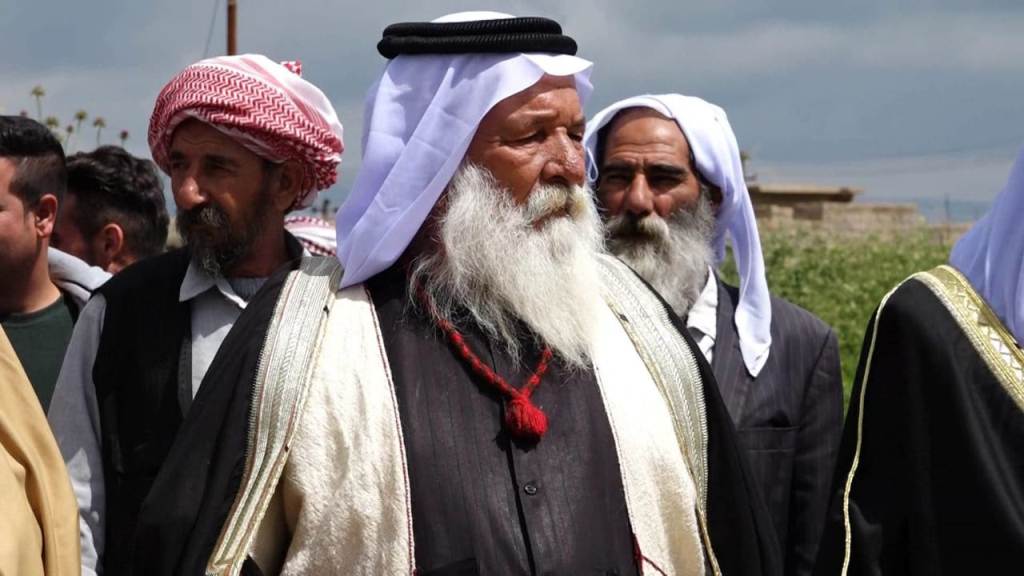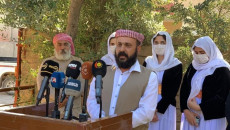The majority of Ezidis in Shingal, including tribal, political and military figures, still refuse to recognize Hazim Tahseen as Mir, and reject the new Baba-Shékh.
The dissatisfaction of the Ezidis in Shingal was made clear at a large meeting on 15 November, attended by military leaders, tribal chiefs and religious figures.
Haydar Shesho, the commander of Ezidkhan Protection Forces in Shingal, told KirkukNow: “We don’t want to separate ourselves from the Ezidis in Shékhan and the [Kurdistan] Region – Ezidis are Ezidis, wherever they are – but the Ezidis in Shingal are treated unjustly: they are not consulted and their voices are ignored. And that is unacceptable.”
The objections surfaced one day after the appointment of the new Baba-Shékh (the spiritual leader of all Ezidis in the world) by the Ezidi High Spiritual Council in collaboration with the Ezidi Mir (Prince) and tribal and religious figures.
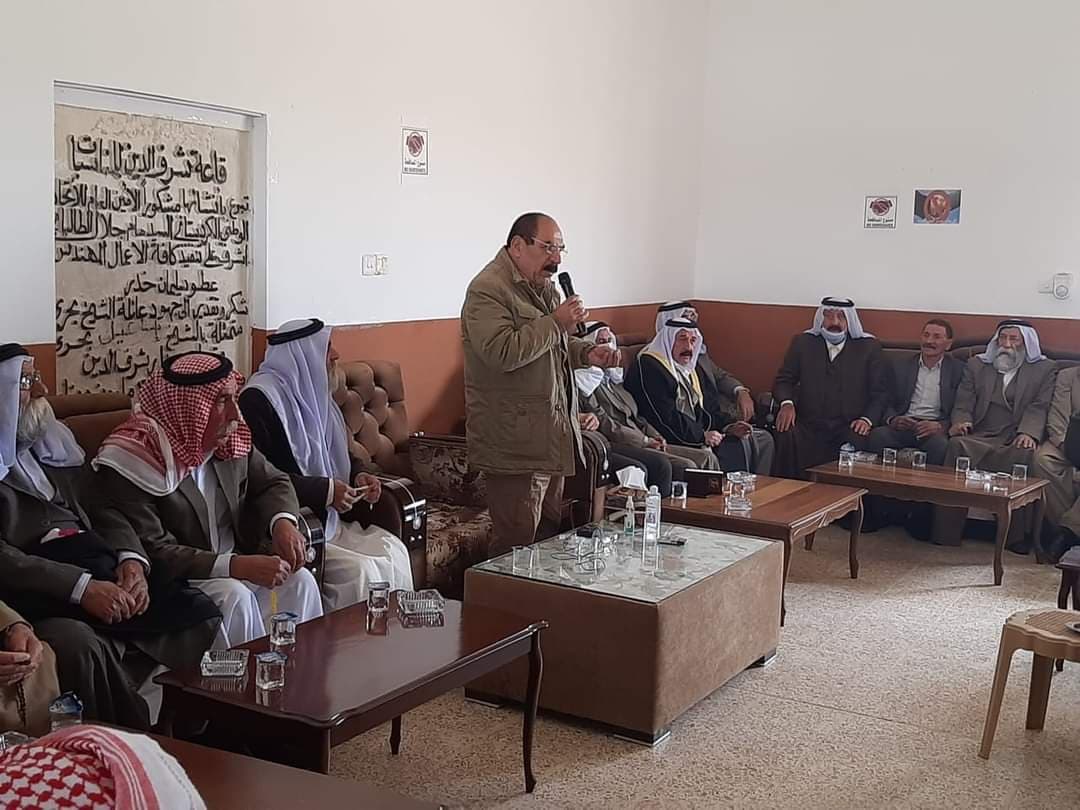
In a ceremony in July 2019, Hazim Tahseen was appointed as Mir of the Ezidis at the Lalish Temple in Shékhan district, Nineveh. Ezidis in Shingal objected to the appointment and still have not accepted Tahseen as Mir.
A month later, a number of religious and other Ezidi figures appointed Naif Dawd Salman as the Mir of Shingal at Shibil Qasim Shrine in Shingal.
“For us, neither Mir Hazim Tahseen, nor the new Baba-Shékh, have legitimacy. If they don’t change those appointments, we will be susceptible to any decision that will be taken by the tribal chiefs and religious leaders in Shingal,” Haydar Shesho said.
Haydar says the way the Baba-Shékh was appointed was wrong, “because the people of Shingal were not consulted. He was appointed based on political affiliation – while it is a religious position. That’s why we don’t accept him as our Baba-Shékh.”
The Baba-Shékh position is the highest Ezidi religious position.
the people of Shingal were not consulted. He was appointed based on political affiliation
Qasim Shesho, commander of a KDP Peshmerga force in Shingal and head of KDP's (17) branch in Shingal, has declared his resignation from both positions in a video message posted on Facebook by his son last night (16 November). The reason, he says, is KDP's meddling in appointment of new Baba-Shékh.
“If boundaries are not set now, and if we accept everything, the people of Shingal will be ignored completely,” Faqir Barakat, chief of Sinji tribe in Shingal, told KirkukNow, and stressed that from now on, they will not accept any decision without their consultation.
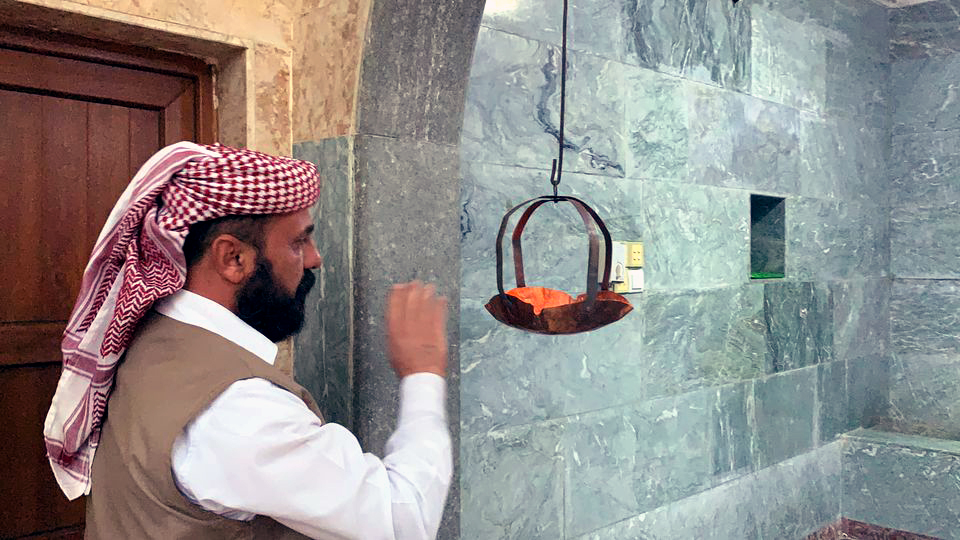
“We don’t object to anyone being appointed to the position, but the matter has been politicized unfortunately, and some sides intend on creating divisions, and that is very dangerous,” Barakat added.
The decision by the Mir Hazim on appointing Baba-Shékh was just
Harman Mirza, a deputy of the Mir, told KirkukNow: “The decision by the Mir Hazim on appointing Baba-Shékh was just. Members of the Spiritual Council, a number of tribal chiefs and religious figures were consulted.”
“Not every decision is to the 100% satisfaction of all people. This is a universal thing. But the majority of Ezidis agree with the decision of Mir Hazim, and we respect the opinions of all Ezidis, especially the people of Shingal.”
According to Mirza, the final decision to appoint the Baba-Shékh is in the hands of the Mir, and that he has the authority to make the appointment without consultation, but he did that out of respect for the community.
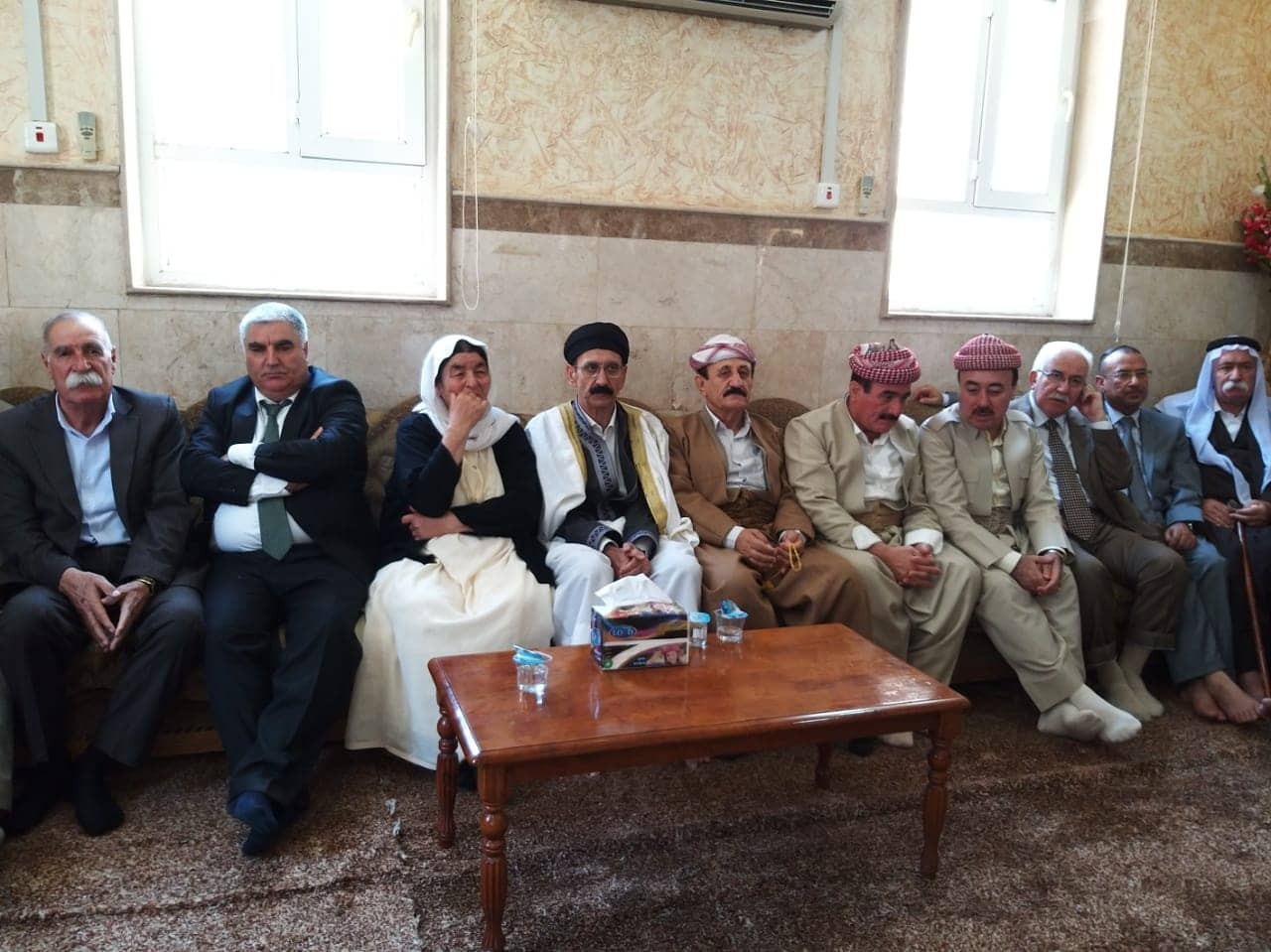
The new appointed Baba-Shékh, Ali Elias, will assume his religious duties starting from 18 November in a ceremony at Lalish Temple.
Dawd Murad, director of an association for families of Ezidi victims, would like to call through KirkukNow the halting of the ceremony at Lalish Temple until all Ezidis reach consensus.
“We are facing a great danger, division and conflicts among the Ezidis will only harm us.”
Murad says that more than 20 other prominent figures call for delaying the ceremony. “If the matter is not dealt with wisely, and without a sense of historical and religious responsibility, we will end up with a disastrous situation.”
Most of Ezidis in Iraq reside in Shékhan and Shingal districts in Nineveh province.

